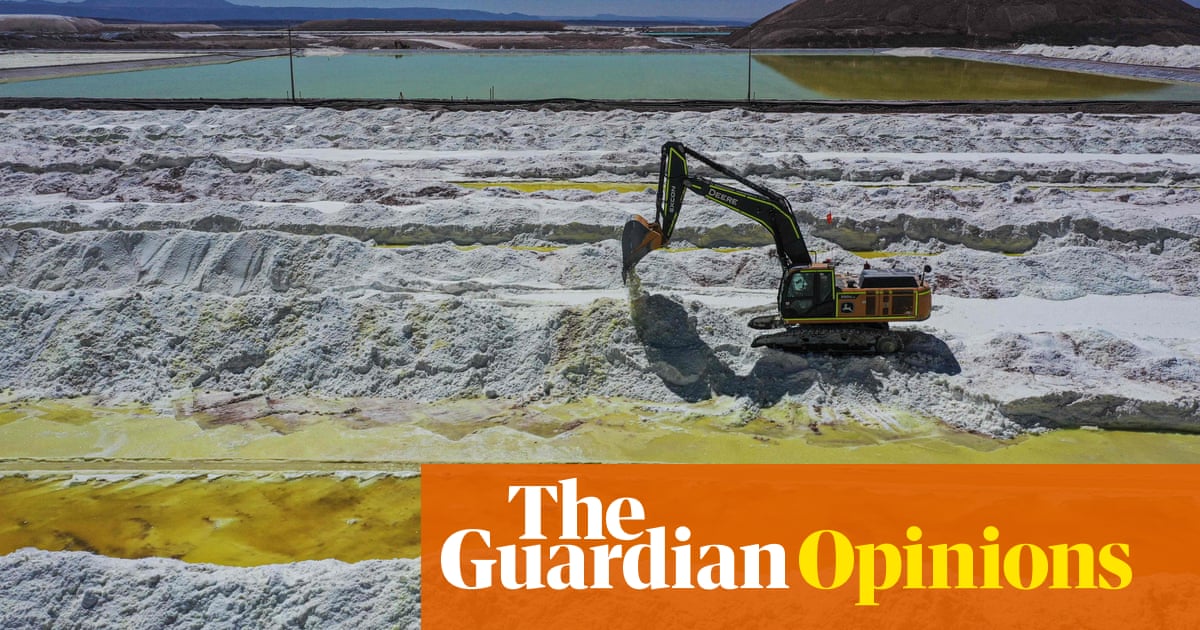Despite its name, the infrastructure used by the “cloud” accounts for more global greenhouse emissions than commercial flights. In 2018, for instance, the 5bn YouTube hits for the viral song Despacito used the same amount of energy it would take to heat 40,000 US homes annually.
Large language models such as ChatGPT are some of the most energy-guzzling technologies of all. Research suggests, for instance, that about 700,000 litres of water could have been used to cool the machines that trained ChatGPT-3 at Microsoft’s data facilities.
Additionally, as these companies aim to reduce their reliance on fossil fuels, they may opt to base their datacentres in regions with cheaper electricity, such as the southern US, potentially exacerbating water consumption issues in drier parts of the world.
Furthermore, while minerals such as lithium and cobalt are most commonly associated with batteries in the motor sector, they are also crucial for the batteries used in datacentres. The extraction process often involves significant water usage and can lead to pollution, undermining water security. The extraction of these minerals are also often linked to human rights violations and poor labour standards. Trying to achieve one climate goal of limiting our dependence on fossil fuels can compromise another goal, of ensuring everyone has a safe and accessible water supply.
Moreover, when significant energy resources are allocated to tech-related endeavours, it can lead to energy shortages for essential needs such as residential power supply. Recent data from the UK shows that the country’s outdated electricity network is holding back affordable housing projects.
In other words, policy needs to be designed not to pick sectors or technologies as “winners”, but to pick the willing by providing support that is conditional on companies moving in the right direction. Making disclosure of environmental practices and impacts a condition for government support could ensure greater transparency and accountability.



They are not imaginary. There are millions of them. I’ve met many of them, and so can you if you ever decide that people from poorer countries are worth your time.
And again, that simply isn’t what a strawman is. Read the link. Everything else aside, you are not using that word in the way people use it. It is as if you are insisting French people say “bone apple tea” before they eat, and then you are calling my condescending for letting you know that you misheard it. I understand it can be hard to admit when you were mistaken, but quite frankly, it will end up causing less harm to your ego in the long run if you do.
You are just full of slightly wrong information aren’t you.
That is what a straw man is. It’s an argument that you make up for the purpose of having an easy win.
Literally an example is getting bribed and buying a dog and when people complain about the bribe you say people don’t like dogs but you do.
Also a “Bone Apple Tea” is when someone says something like “as the Japanese say Sorry-naw-ra” you are wrong goodbye.
I understand that Bone Apple Tea is a different type of mistake then what you are making. I was just pointing out that you were misunderstanding something, and when someone corrects you, you get defensive instead of trying to learn.
Someone said crypto has no use, I pointed out that for millions of people, it does have a use. You may not like this fact, but that doesn’t make the response invalid.
*than
Thank you!